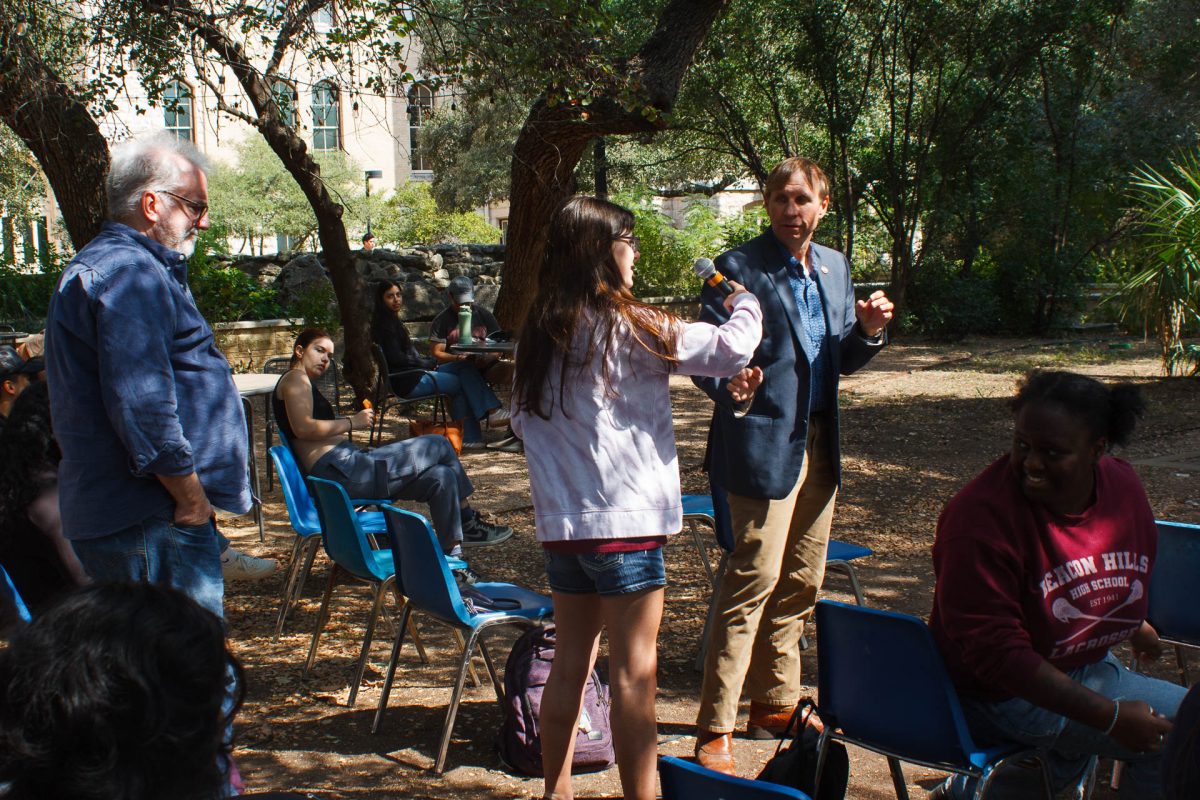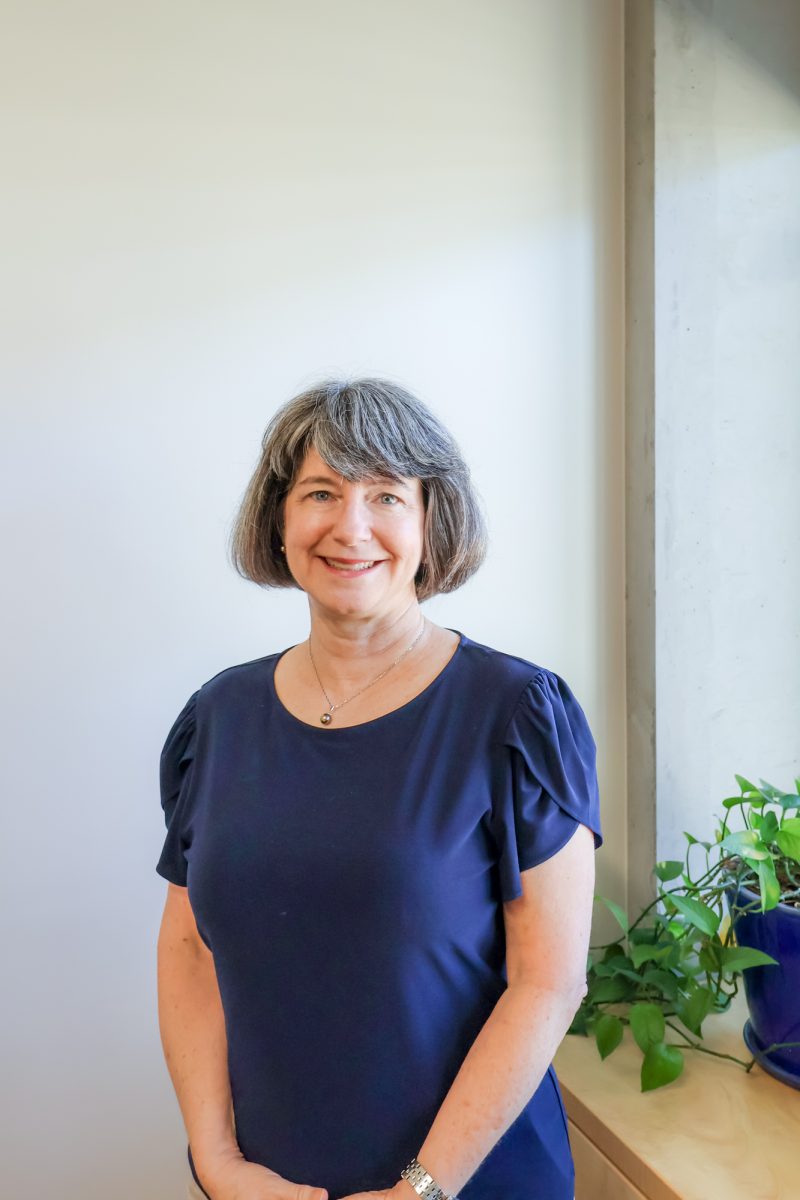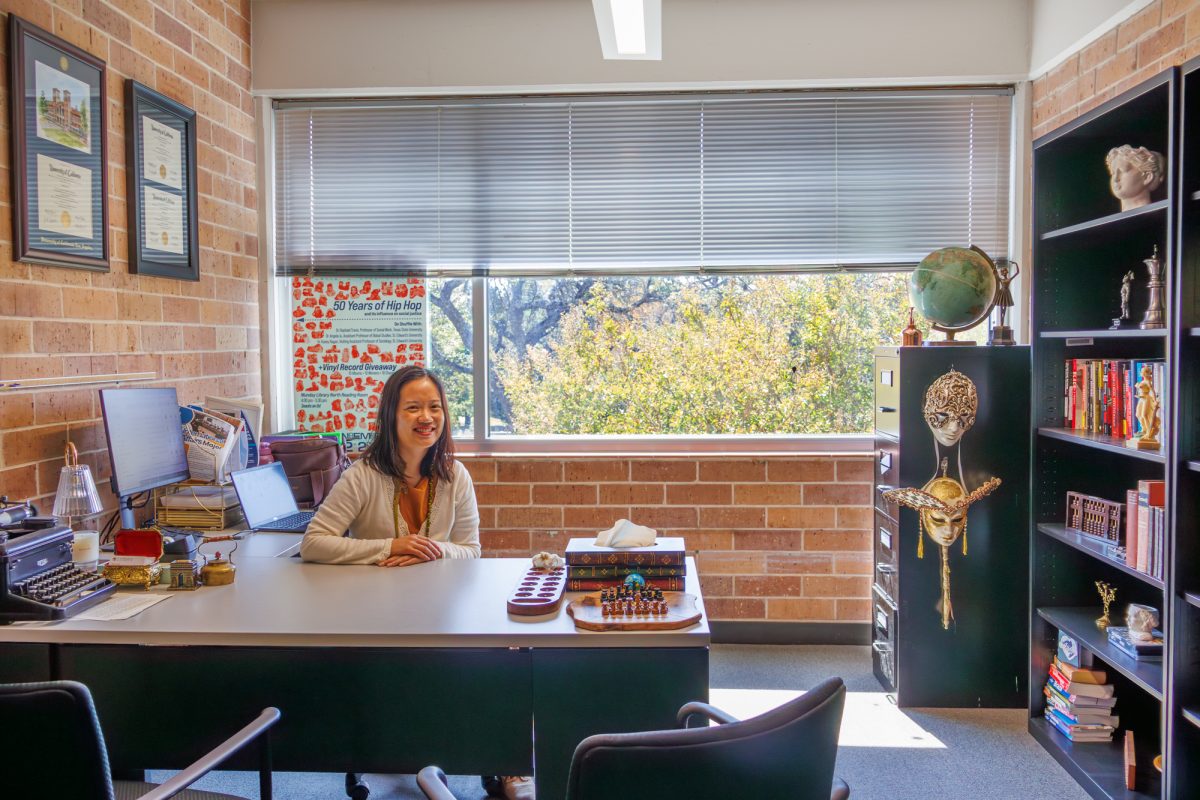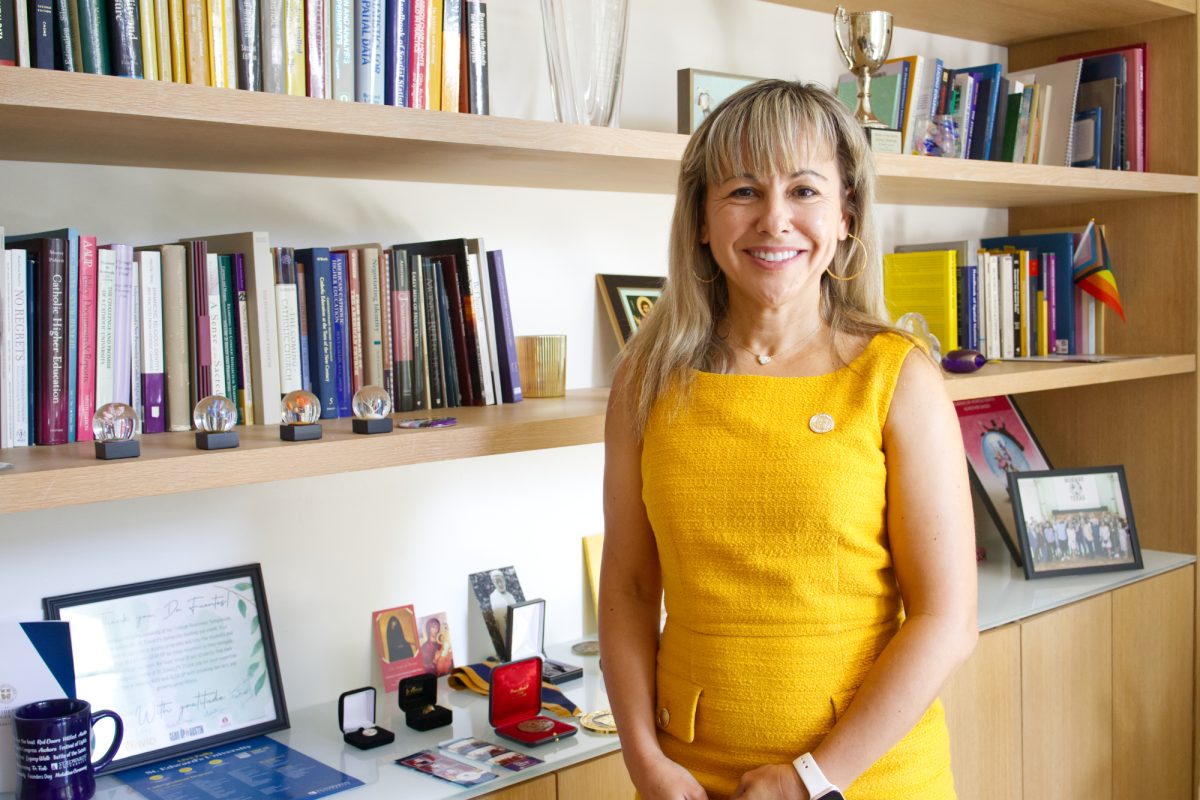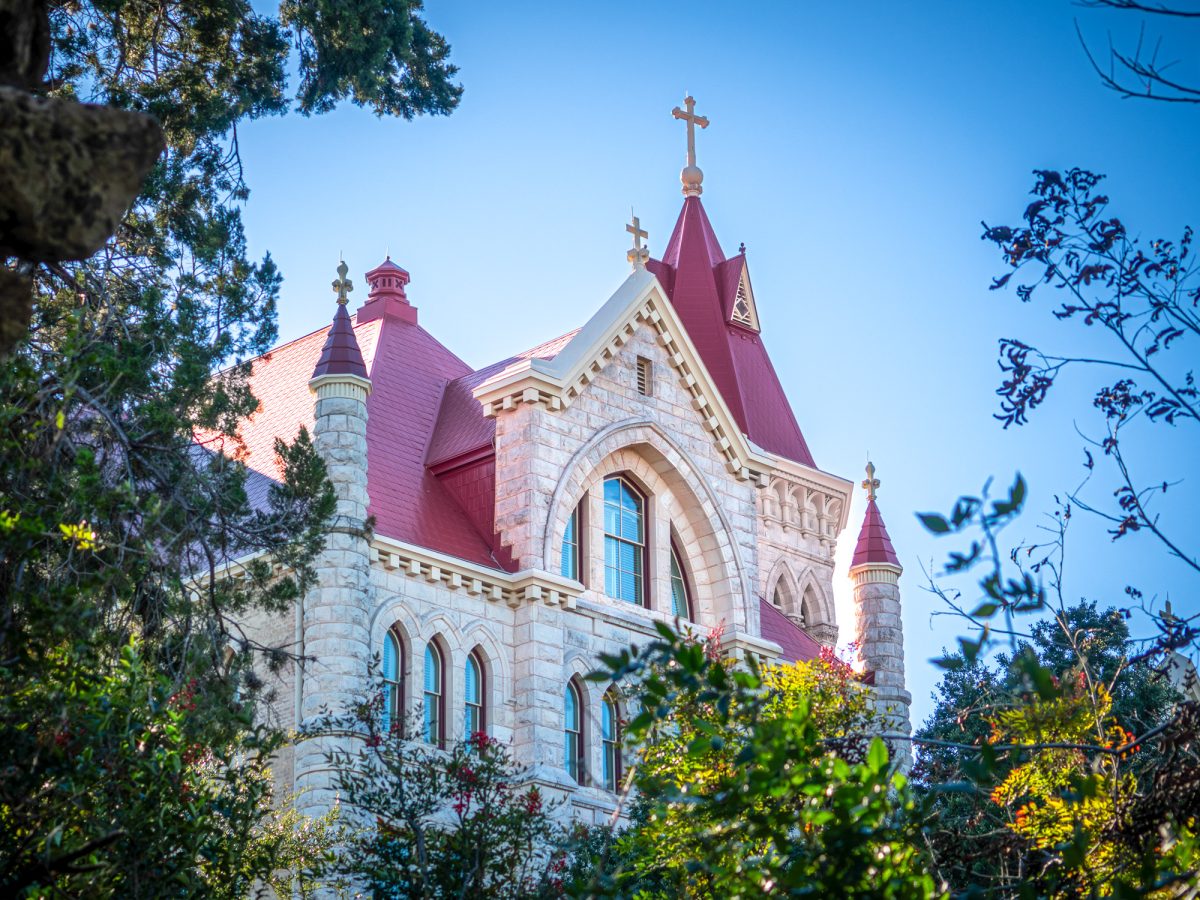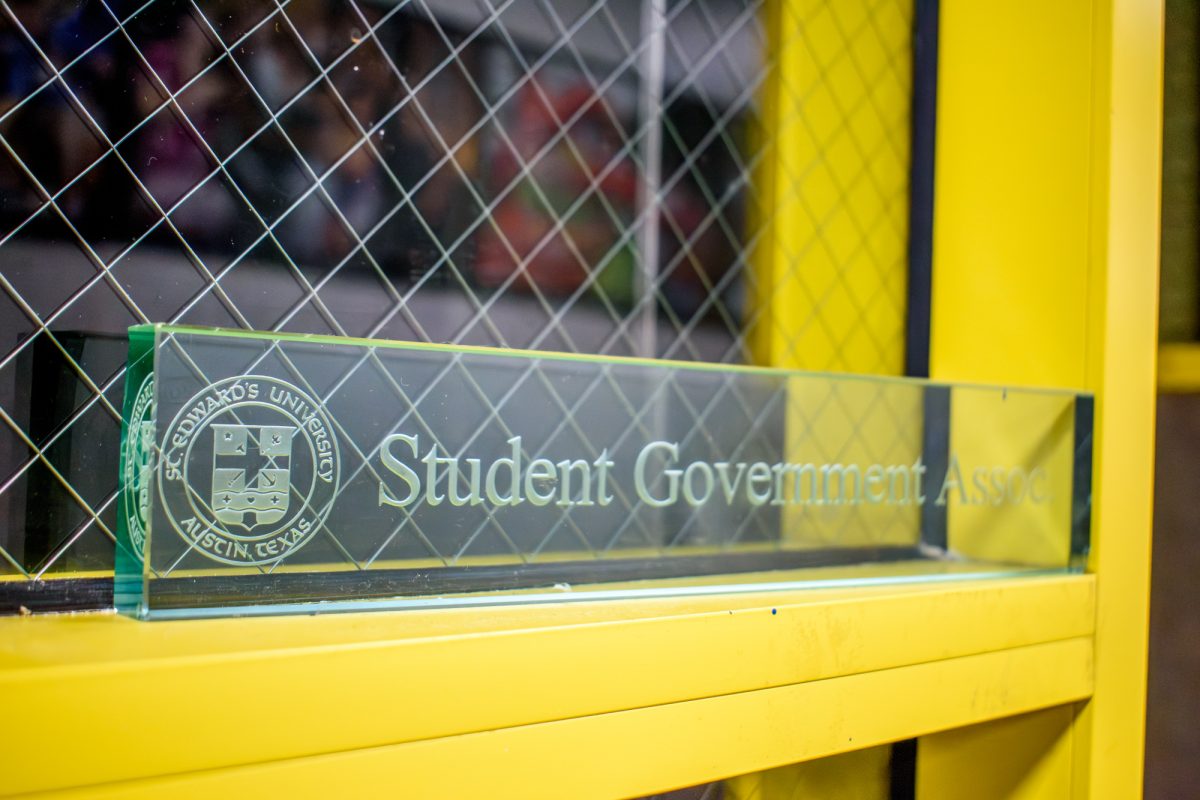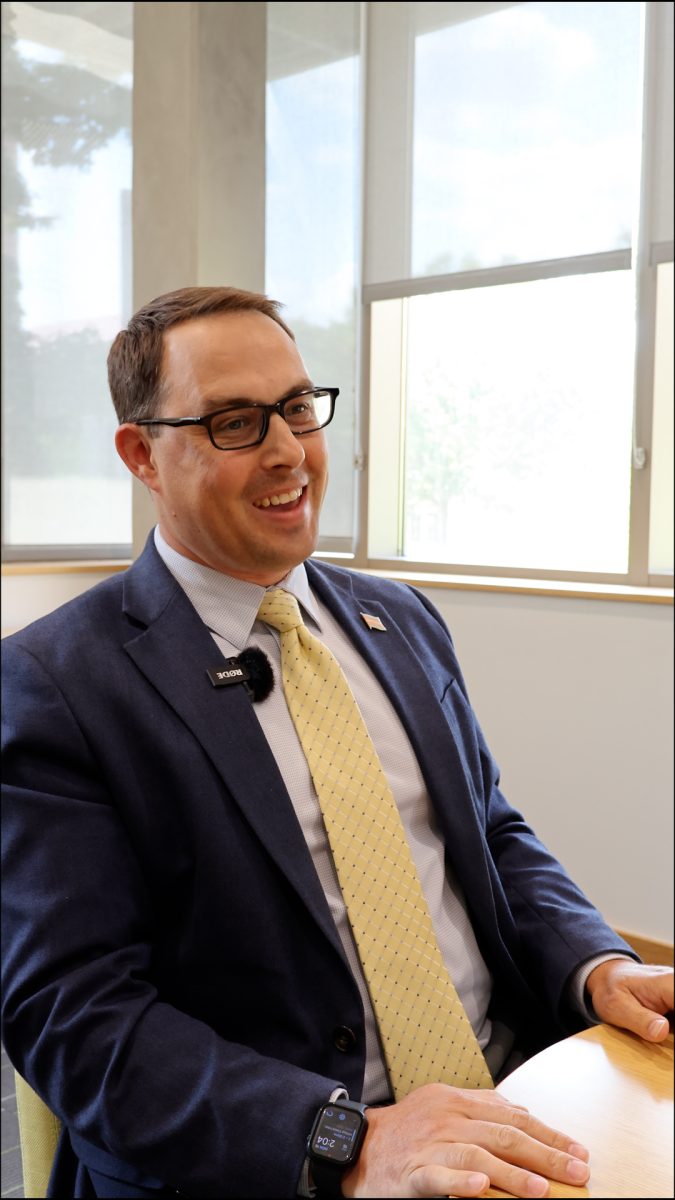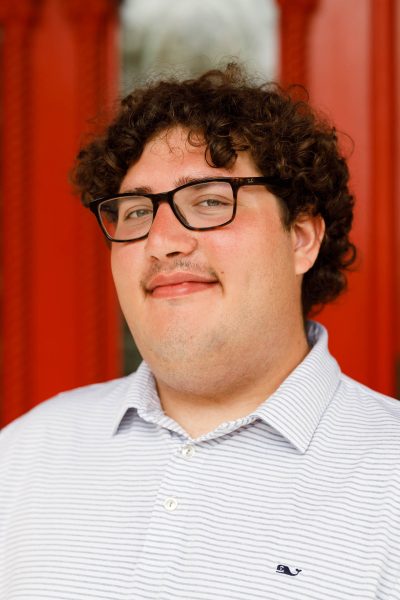The Kozmetsky Center hosted Constitutional scholar Kim Wehle as a guest speaker for a town hall where attendees asked about democracy outside the Carriage House.
Kozmetsky brought Wehle, who traveled from her residence in Washington D.C., to participate in a two-part event centered on “How to Promote Democracy – and Why.” The first part, a “Lunch ‘N’ Learn” town hall at 12 p.m., was followed by a lecture by Wehle from 6-8 p.m. on Oct. 16 at Carter Auditorium.
“Kim Wehle is a nationally renowned Constitutional scholar, who has written many books on the subject,” Charlie Mossberger, Kozmetsky intern and senior political science student said. “She has a lot of expertise in various areas including promoting democracy, defending it against tyranny and authoritarianism – which relates back to our common theme this year. So we hosted her for a program which was in line with the common theme to continue to get more educated on the subject.”
For both the town hall and lecture, students were encouraged to ask Wehle questions on democracy, American politics and government in exchange for free Kozmetsky branded fanny packs and copies of Wehle’s 2019 book “How to Read the Constitution – and Why.”
Attendees of the town hall were met with free food and drinks as well as other small pieces of Kozmetsky merchandise: such as stickers, magnets and pens.
While the event was supposed to be from 12-1 p.m., students did not begin asking questions until 12:42 p.m. – making the town hall conclude at 1:45 p.m.
Preluding the questions, Executive Director of the Kozmetsky Center David Thomason, Ph.D., asked a series of probing questions to Wehle to start the discussion. He first asked about Wehle’s interpretation of “natural rights” and what “underneath the Constitution is protecting our society” using the problem of the infinite regress – a theoretical problem of searching for precursors to precursors in an infinite series.
To which, Wehle responded by asking members in attendance what they thought rights were. A variety of answers were heard, but all of them considered the implications of individual liberty. Wehle then came back and said that rights only exist to protect “us” from the oversteps of government. To her, the discussion of natural rights is irrelevant in discussing democracy.
“The original Constitution has no reference to rights on an individual level,” Wehle said. “It is not until the Bill of Rights was written after the fact to prevent people from getting bullied by the government.”
She then went on to explain how democracy within the U.S. was formed, and its relation from the U.K.’s system of limited monarchy.
“The Framers of the Constitution took the traditional system of the divine right of monarchs and flipped it upside down, creating an inverted pyramid,” Wehle said. “This upside down triangle now had the government deriving power from the people instead.”
Additionally she noted how the Framers, a name given to the initial creators of the American Constitution, divided the government into three branches to further protect the people from abuses of power. However, she then stated that these institutions now ultimately pose the greatest fear for American democracy. Specifically she stated that the U.S. Supreme Court is our greatest threat to democracy currently.
She cited current problems with judicial activism and the Supreme Court actively re-interpreting the Constitution. In her view, the modern Supreme Court has stepped away from tools of judicial restraint and precedent in creating new laws: such as in Roe v. Wade, or the 2024 case on executive immunity.
Students asked questions surrounding checks and balances, technology and AI’s role in democracy, as well as the parallels between climate crises and democratic crises. “It is interesting talking about democracy, even though she is primarily coming from an American perspective,” French transfer and political science student Maxence de Pluvie said. “It seems her understanding of the history of democracy and historical fact is not entirely accurate, but it is nice how she links it to the modern U.S.”
The town hall and lecture are the last big events that the Kozmetsky Center is holding this semester. However, Thomason advertised that the center is hosting an “election night watch party” on Nov. 5 from 6-11 p.m. The watch party will feature political experts and a P. Terry’s food truck providing free food.

